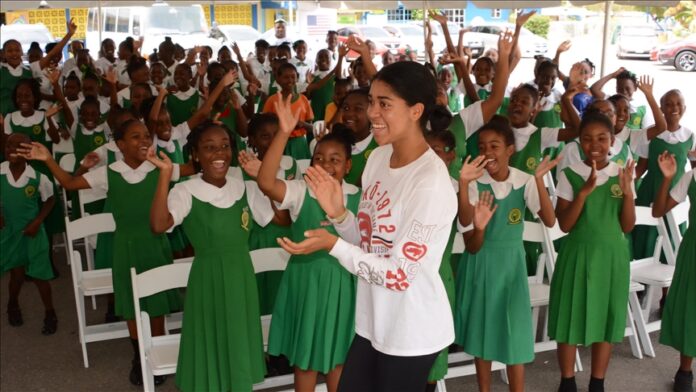Nigerian-American filmmaker and education advocate Zuriel Oduwole has already made a significant impact on the global stage.
At just 22 years old, she has become the youngest Nigerian to be nominated for the Nobel Peace Prize and the first to be considered in the Peace category.
Since beginning her filmmaking career at the age of nine, Oduwole has built a reputation as a strong voice for change, using media and advocacy to address pressing social issues, including child marriage.
Born in Los Angeles, her work has taken her across the world, particularly focusing on Africa, where she has championed education for girls and policy reforms.
A Moment of Surprise
Reacting to her nomination, Oduwole admitted that she was initially in shock.
“I was completely taken aback when I heard about it. It was something I never expected,” she said. “Even my family is still processing the news.”
Despite her years of advocacy and peacebuilding efforts, she never imagined that her work had reached the level of recognition needed for such an honor.
“I’m deeply grateful to those who put my name forward,” she said. “To be honest, I didn’t realize people were paying this much attention to my work.”
She expressed admiration for past Nobel Peace Prize recipients, such as Nelson Mandela, Jimmy Carter, and Kofi Annan, and acknowledged that simply being nominated was a tremendous honor.
For Oduwole, the nomination is not an endpoint but rather an encouragement to continue making a difference. “It’s a reminder to keep pushing forward,” she added.
A Filmmaking Journey Sparked by Curiosity
Her path to advocacy began unexpectedly—with a school assignment. At nine years old, she participated in a national history project that required students to document major revolutions. While many of her peers focused on Western historical events, she chose to explore Africa’s history.
Her research led her to the Ghanaian Revolution, which she found to be one of the most successful in Africa. Determined to present an authentic narrative, she taught herself filmmaking, traveled to Ghana, and produced her first documentary.
That experience was transformative.
“It was then that I truly understood the power of media,” she recalled.
Since then, she has used storytelling as a tool for advocacy.
“For over a decade, I have created films for three key reasons,” she explained.
First, to highlight positive stories that are often overlooked.
Second, to bring attention to narratives that rarely get mainstream coverage.
And third, to raise awareness about critical global issues—particularly those related to education.
Making a Difference in Mozambique
One of her most impactful moments as an activist came in 2018 when, at just 16, she met with Mozambique’s President Filipe Nyusi to discuss child marriage.
Rather than relying on statistics, she chose to ask a simple but powerful question:
“I asked him, wouldn’t you want every girl in Mozambique to have the opportunity to do what I’m doing—or even greater things?”
Her question sparked serious discussions, and after months of advocacy, Mozambique officially outlawed child marriage in July 2019. This legislative change positively affected more than 1.1 million girls.
That experience reinforced her belief that storytelling is not just about spreading awareness—it can be a catalyst for real policy change.
Inspiring the Next Generation
Beyond her own work, Oduwole is committed to empowering young people through filmmaking. Through her DUSUSU Foundation (Dream Up, Speak Up, Stand Up), she has been teaching young individuals how to create films that tell meaningful stories.
“I believed that if others had the same opportunities, they could also become filmmakers,” she said.
She started conducting filmmaking workshops at just 13 years old in Namibia, and since then, her training programs have expanded to eight countries, including Ghana, Rwanda, Mexico, and Seychelles.
“A few days ago, I was in Seychelles, teaching young people about film editing, lighting, and storytelling,” she shared. “It was an incredible experience.”
So far, she has trained nearly 600 students, many of whom have gone on to use media to share their own perspectives.
Looking ahead, she hopes to expand her training programs to even more countries, ensuring that more young people gain the skills to tell their stories.
A Future of Continued Impact
Balancing filmmaking, advocacy, and personal life is not always easy, but Oduwole remains committed to her mission.
“It’s not always simple, but knowing why I do this work makes all the challenges worth it,” she said.
Despite her numerous achievements, she remains humble, emphasizing that she is just a regular young woman with a passion for change.
“I still do all the things that any 22-year-old does—I just happen to be involved in these other things on the side,” she said with a smile.
With a Nobel Peace Prize nomination under her belt, Oduwole’s journey is far from over. She is determined to keep using storytelling to inspire change, amplify important voices, and leave a lasting impact on the world.



